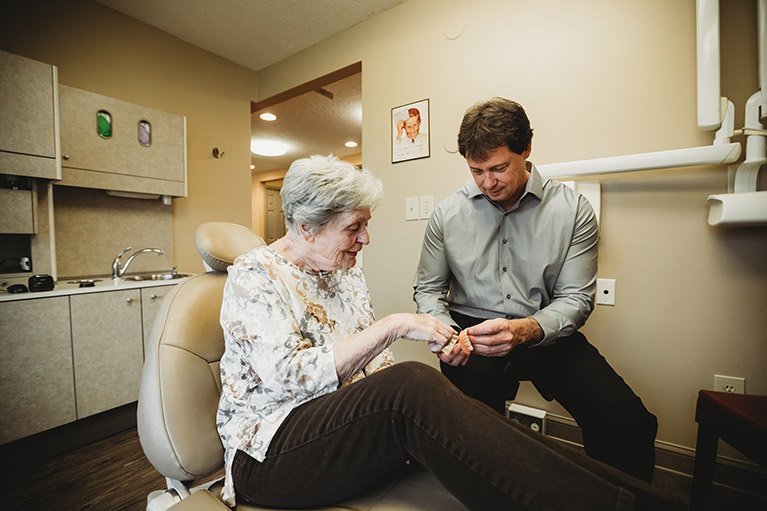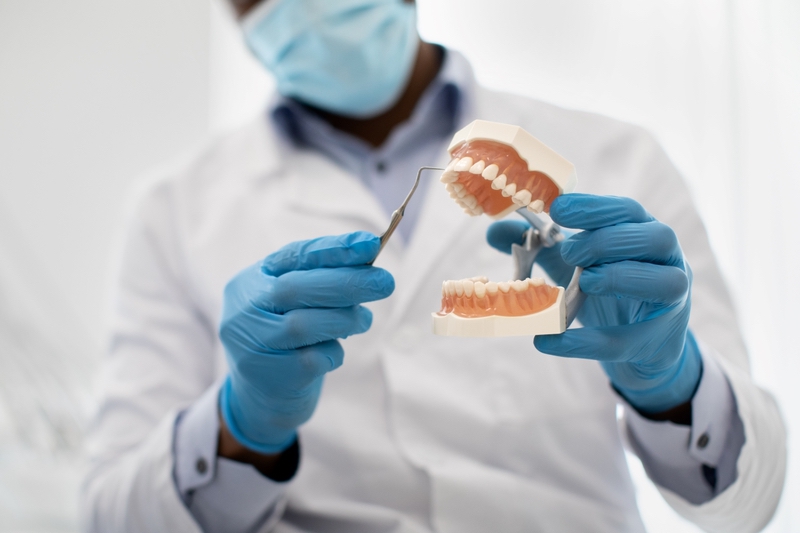Innovative Dental Implant Implant Techniques for the Perfect Smile
The question of whether smokers can get dental implants successfully is one that many sufferers face. Smoking has long been related to opposed effects on oral health, together with gum disease, tooth decay, and compromised healing. Many individuals who smoke could fear about their ability to endure dental procedures like implants, which rely heavily on proper therapeutic and integration with the bone.
Dental implants are designed to exchange missing teeth, providing a sturdy foundation for artificial teeth. The process entails placing a titanium publish into the jawbone, serving as a root for the model new tooth. For smokers, the healing process may be extended as a result of decreased blood circulate and oxygen supply, which impacts the body’s ability to heal. Smoking also results in the release of toxins that can negatively impact the encircling tissues.
Research indicates that smokers face greater failure rates with dental implants in comparability with non-smokers. Several studies recommend that the success rates of implants could decrease by 10% to 20% in smokers. This is largely because of impaired healing, increasing the chance of infections and problems. The nicotine in cigarettes narrows blood vessels, decreasing oxygen transport and nutrient supply, both vital for healing.
With Permanent Dental Implants, Restore Your Smile
In addition to therapeutic issues, smoking can even lead to bone loss within the jaw. A wholesome jawbone is important for the profitable placement of dental implants. The impression of smoking can result in the degradation of jawbone density over time. For people considering implants, maintaining bone health is essential, and smokers may need further treatments to reinforce bone density before they'll receive implants.
Before continuing with implants, a dentist could evaluate a smoker’s overall oral health. This evaluation consists of checking for gum disease, tooth decay, and the condition of the bone. If significant issues are discovered, the dentist could recommend that the patient cease smoking for a designated period earlier than and after the surgery to enhance the probability of success. In some instances, particular dental procedures might be necessary to enhance the conditions of the oral cavity.
Smoking not only impacts the quick healing course of but can even affect how long the implants last. Several research suggest that long-term smokers may face points corresponding to peri-implantitis, an inflammatory condition affecting the tissues across the implant. This condition can result in bone loss, which might in the end result in implant failure. The cyclical nature of smoking-related complications raises severe questions on long-term outcomes for smokers seeking implants.
Comprehensive Dental Implant Care for Long-Term Results
However, quitting smoking can lead to important improvements in oral health. Even a short cessation interval previous to surgery can improve blood flow and the body's ability to heal. Dental professionals often encourage patients to suppose about quitting as part of the preparation for any dental procedures, including implants. Some research have documented circumstances the place short-term abstinence from smoking positively influenced the success of dental implants.
The support of healthcare providers, including dentists and general practitioners, can make a considerable distinction in this course of. Programs designed to help people quit smoking are available and might include counseling, medicines, and group help. Patients who successfully quit smoking often expertise not only higher dental outcomes but in addition total health advantages, bettering their quality of life.
Patients also need to be informed about the risks associated with smoking earlier than and after the position of dental implants. Post-surgical care is essential for making certain that the physique integrates the implant without issues. Smokers are sometimes cautioned concerning the importance of maintaining good oral hygiene during the healing course of. Regular follow-ups with the dentist can aid in monitoring the therapeutic and allow for early intervention if complications come up.
It is important to understand that whereas the success rates for smokers may be decrease, they are not totally precluded from receiving dental implants. Each case must be carefully evaluated by a dental skilled who can present customized suggestions. Factors such because the extent of smoking, period, and total health standing will assist determine essentially the most applicable course of action for every affected person.
With Johnstown Implants, You Can Get a Natural-Looking Smile.
Emphasizing preventative care, each pre- and post-surgery, holds important importance for smokers considering dental implants. Routine dental check-ups, efficient periodontal therapy, and strict adherence to oral hygiene may help mitigate a few of the risks related to smoking. It’s also beneficial for smokers to discuss their habits candidly with their dental care staff to develop a tailor-made technique that addresses individual challenges.

Dental implants can provide a restorative answer for missing teeth, enhancing both appearance and functionality. For smokers, however, continuing with warning is necessary. Engaging in open dialogue with healthcare suppliers about smoking standing and potential cessation can lead to better oral health outcomes. The willingness to make life-style changes can considerably improve the probability of profitable dental implant placement.
As a last notice, smokers should remain proactive concerning their oral health. Making knowledgeable selections and prioritizing dental care might pave the way in which for successful dental implant therapy. While smoking does introduce challenges, the potential for achieving a favorable consequence exists with the right support and commitment to more healthy habits.
Comprehensive Dental Implant Care for Long-Term Benefits
Implementing methods for quitting smoking not only benefits the chances of dental implant success but in addition improves her comment is here general health, finally leading to a better quality of life (Advanced medical implants for the restoration of a complete smile).
- Smoking can significantly hinder the therapeutic course of after dental implant surgery because of lowered blood flow and oxygen ranges within the gums.
- Smokers have a better risk of implant failure, with studies indicating a noticeable disparity in success charges in comparability with non-smokers.
- The presence of nicotine and other harmful chemicals in tobacco merchandise can lead to problems corresponding to infections and delayed recovery.
- A thorough session with a dental skilled is crucial to evaluate individual risks before proceeding with dental implants for smokers.
- Smoking cessation earlier than and after the implant procedure can considerably improve the chances of success and general oral health.
- Dental professionals would possibly advocate extra therapies or procedures, corresponding to bone grafting, to boost the viability of implants in smokers.
- Smokers could require extra frequent check-ups and maintenance appointments to observe the condition of their implants over time.
- Many dental clinics provide tailor-made applications to assist smokers in quitting, which could be helpful for these contemplating implants.
- Adequate oral hygiene practices, combined with smoking cessation, play a crucial position in minimizing problems after receiving implants.
- Evaluating lifestyle adjustments, together with dietary modifications, can contribute positively to the long-term success of dental implants for smokers.undefinedCan smokers get dental implants successfully?
Discover the upcoming developments in implant dentistry in Johnstown.
What influence does smoking have on dental implants?
Smoking can significantly hinder the success of dental implants. It restricts blood flow, delays therapeutic, and will why not find out more increase the risk of infection, leading to a better likelihood of implant failure - The Best Implant Dentistry in Johnstown.
How long should one quit smoking before getting dental implants?
Trusted Dental Implant Solutions for Missing Teeth in Johnstown
Ideally, it is suggested to quit smoking a minimal of 2-4 weeks prior to the procedure. This promotes higher healing and will increase the possibilities of profitable integration of the implant.
Are there particular risks for smokers undergoing dental implant surgery?
Yes, smokers face increased risks such as delayed healing, infection, and potential implant failure. These factors make the procedure extra advanced, and cautious consideration is needed.
With Reliable Implant Dentistry, Restore Your Smile.
Can dental implants be successful for infrequent smokers?
While occasional smokers might have a decrease risk compared to heavy smokers, they're nonetheless at an elevated risk for additional reading issues. Consulting with a dental professional for personalized advice is crucial.

What are suggestions for smokers to enhance dental implant success rates?
With Johnstown Dental Implants, You Can Have A Great Smile.
Smokers can enhance their probabilities by quitting smoking well in advance of the surgery, sustaining good oral hygiene, and following post-surgical care directions supplied by their dentist.

Is there a distinction in recovery for smokers versus non-smokers?
Yes, smokers generally expertise longer recovery times and higher complication charges compared to non-smokers because of impaired blood circulation and oxygen supply to healing tissues.
What should a smoker focus on with their dentist earlier than getting implants?
- With Professional Dental Implants, Make a Beautiful Smile.
The Best Dental Implant Treatments in Johnstown for Missing Teeth

Smokers ought to focus on their smoking habits, any history of problems with previous dental work, and methods for quitting or reducing smoking before the procedure.
How does smoking affect long-term implant maintenance?
With Expert Dental Implants in Johnstown, You Can Get a Full Smile.
Smoking can complicate long-term maintenance of dental implants. Smokers could also be more vulnerable to gum disease, which might jeopardize the soundness of implants over time.
Can nicotine patches or other aids assist smokers through the dental implant process?
Yes, nicotine replacement therapies corresponding to patches can help people reduce cravings and give up smoking earlier than surgery. It's advisable to debate this with a healthcare professional to discover out one of the best approach.